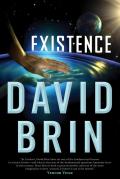Make Your First Novel a Murder Mystery?
Physicist turned science-fiction novelist and social commentator David Brin recently shared this advice for new storytellers:
This advice also shows the value of a distinction I invented for an SCBWI presentation a few years back: between genre and mode. Mystery is a genre, defined by readers’ expectations for the plot. Science fiction, fantasy, historical fiction, futuristic dystopia, melodrama, farce, and contemporary realism are modes, defined by what readers expect can happen in different worlds—i.e., elements of the setting. A mystery (or a romance, or a dead-dog story, or a heist caper, or almost any other genre) can be told within different modes. That’s how a science-fiction novel can also be a murder mystery.
As another example of this overlap, the new Soho Teen imprint publishes nothing but mysteries and thrillers for young adults. But, as editor David Ehrenhaft said at Cynsations, some of those books have fantastic or dystopic settings. Mystery is the genre; paranormal is the mode.
Now if I keep defining and using those terms for twenty years, maybe they’ll catch on.
No matter what genre or style they want to create for a living, I recommend that new authors make their first major project a murder mystery.You might see why David calls his blog Contrary Brin.
The reason is simple. All other genres let the author get away with flaws in plotting and suspense, by distracting the reader with genre-specific razzle-dazzle, e.g. romantic tears or dying dragons or scifi tech-speak. But in a murder mystery, just one question is paramount; did the dramatic, whodunit revelation pay off? Was it simultaneously both well foreshadowed and surprising?
Does the reader experience a pleasurable moment of shock and self-loathing? "It was all there and I just missed figuring it out! I'm sooooo stoooopid!" If that's how your reader feels, at the crucial moment of whodunit disclosure, then she or he will buy your next book. That's the wonderful, ironic fact.
This advice also shows the value of a distinction I invented for an SCBWI presentation a few years back: between genre and mode. Mystery is a genre, defined by readers’ expectations for the plot. Science fiction, fantasy, historical fiction, futuristic dystopia, melodrama, farce, and contemporary realism are modes, defined by what readers expect can happen in different worlds—i.e., elements of the setting. A mystery (or a romance, or a dead-dog story, or a heist caper, or almost any other genre) can be told within different modes. That’s how a science-fiction novel can also be a murder mystery.
As another example of this overlap, the new Soho Teen imprint publishes nothing but mysteries and thrillers for young adults. But, as editor David Ehrenhaft said at Cynsations, some of those books have fantastic or dystopic settings. Mystery is the genre; paranormal is the mode.
Now if I keep defining and using those terms for twenty years, maybe they’ll catch on.



No comments:
Post a Comment